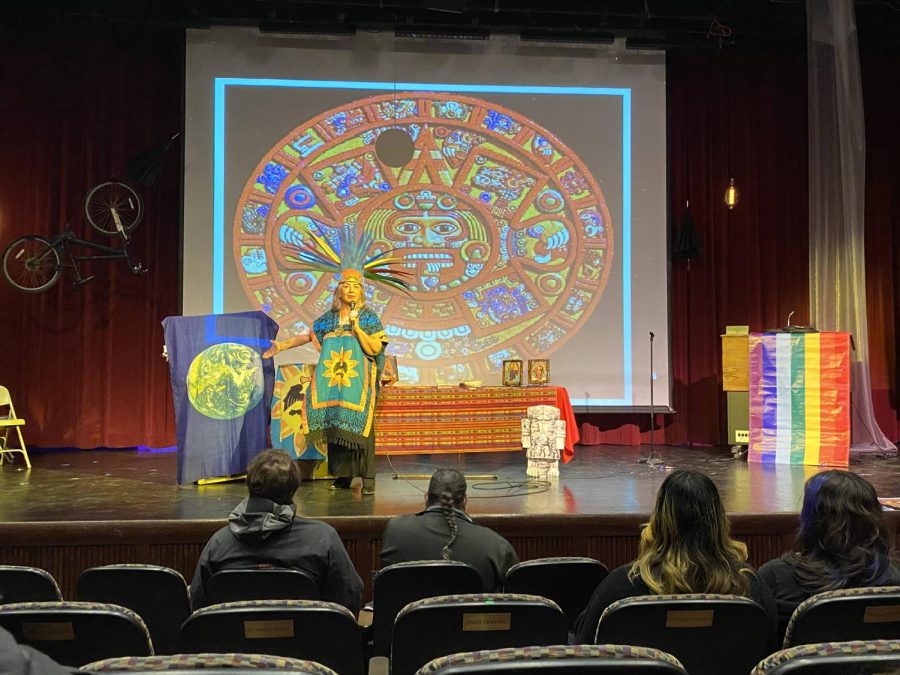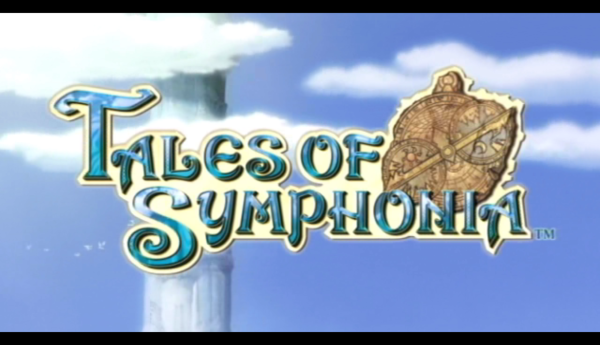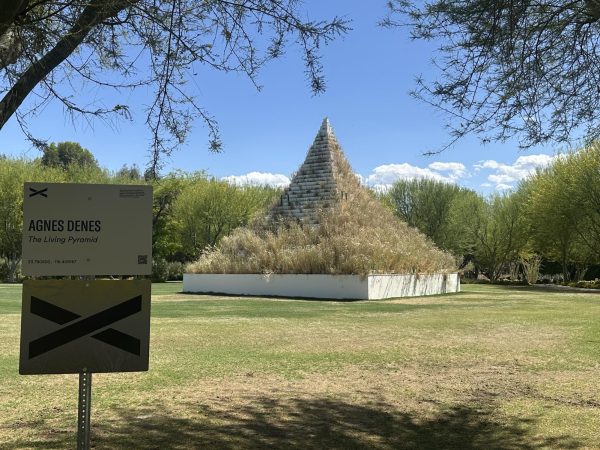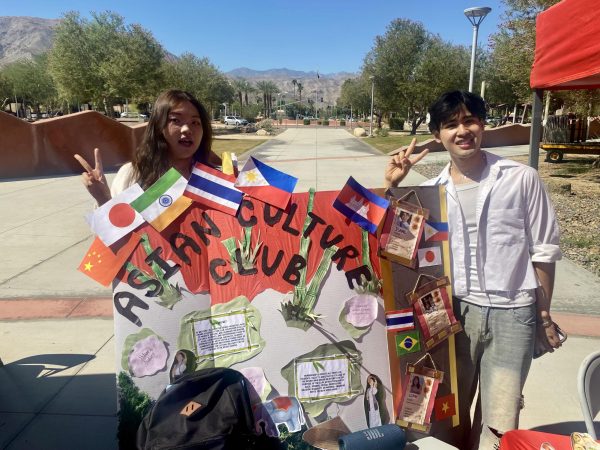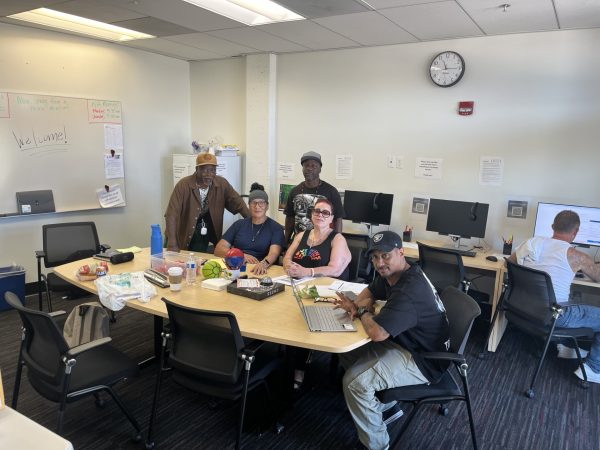Artist performs Chicana ‘Her-story’ for Women’s History Month
Maria Elena Ramirez presents Chicana Her-story performance at the Pollock Theater for Women’s History Month.
Women’s experiences are never single stories. With the many nationalities and backgrounds to be recognized this month, College of the Desert once more honored Women’s History Month by hosting Chicana/Apache/Puerto Rican artist Maria Elena Ramirez’s Her-Story performance.
Ramirez’s performance was a multimedia presentation of a Mexica (otherwise known as Aztec) oral history by highlighting the work of Mexica women and the unwritten truths of this society that were destroyed by colonialization. She sang, rapped and told Mexica stories through ensembles and native colors, imagery and flags. Her performance began strong with this opening statement: “Forget your roots, and you’re lost.”
Mexica stories from south of the border are not usually associated with Women’s History Month, but Ramirez’s performance contradicts this. Her performance dictates Mexica excellence and stories derived considerably from the work of Mexica women during and after colonialization from the European settlers that arrived in lands now recognized as northern and southern Mexico.
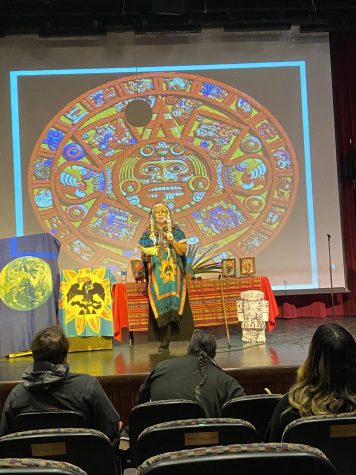
Dressed as an elder with a cane and grey braided hair, Ramirez reminds the audience of the settlers’ first appearances and how they were predicted by the Mexica years before their arrival. Their calendar is cyclical — based on moon phases, oral history, and agricultural knowledge. The calendar is deeply connected to women and the earth’s natural state by mimicking the earth’s rotation around the sun and how the moon’s phases correlate with women’s menstrual cycles. Their spiritual work and vast knowledge of the world around them are tied to the type of governance and presence they had over the lands: precise, calculated and devoted.
Ramirez emphasized, “We have never been the savages we have been portrayed.”
Ramirez placed a Mexica headdress on her head and became the High Priestess. This is where Her-Story began.
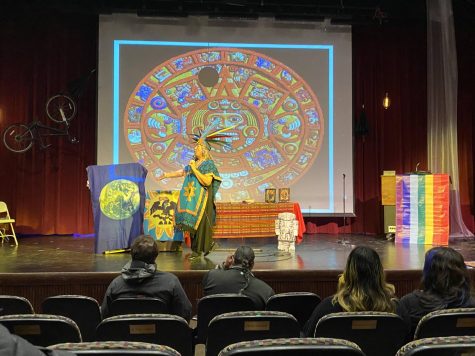
The High Priestess sings and raps about the duality of nature and, simultaneously, gender/sexism against women, along with the power of decolonizing the mind from preexisting stereotypes of people from Mexica/Chicano/Latin American/Indigenous descent.
The masculine and feminine duality was recognized in Mexica history and practices. According to the artist, these opposing energies existed within the natural world and within humanity to keep order and existence in balance. Colonialization from the Catholic Church directly contributed to the taboo of the feminine and its contradicting traits, forcing patriarchal ideas within the land.
The aftereffects of colonialization still exist within our language today. The High Priestess sings of language used as a colonial tool, “a dehumanizing tool,” meant to instill patriarchal rule.
Many women can attest to the harmful experiences of sexist language, even to the point of trauma or mental harm. Ramirez sings, “sexist language trumps our very own names as women.”
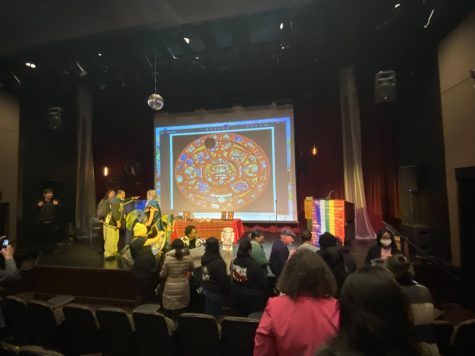
As awful as it is to contribute to sexism through our language, how can one combat this? How can one start that process of decolonization? Ramirez believes knowledge and truth-seeking can only be attained through education.
The High Priestess urged Chicano and indigenous folks to seek a college education, “It’s time to decolonize your mind.”
Ramirez continued to remind the audience about the Mexica ancestors’ passion for education. As pioneers of science and astronomy, they venerated education to further instill a compulsory education system for Mexica youth, both girls and boys.
All of Ramirez’s oral histories and experiences convey modern indigenous women’s experiences. It is time for those within these communities to honor their women, grandmothers and mothers this month and always.
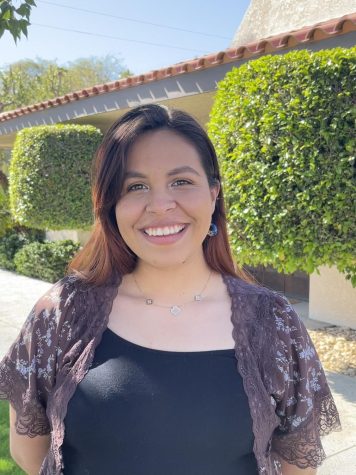
Cindy is a first-year student majoring in Journalism (AA-T) at College of the Desert. Currently working towards her Associate’s degree, Cindy plans to...

